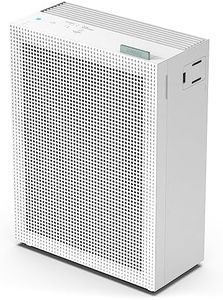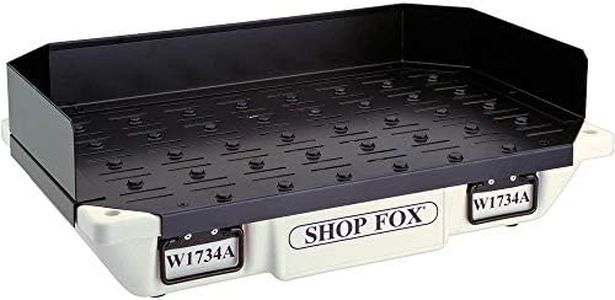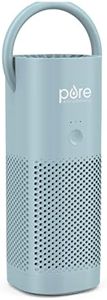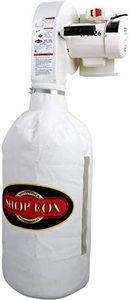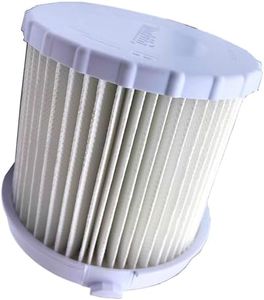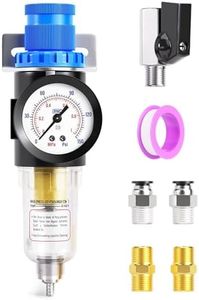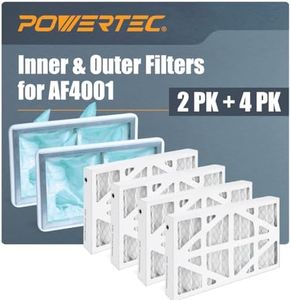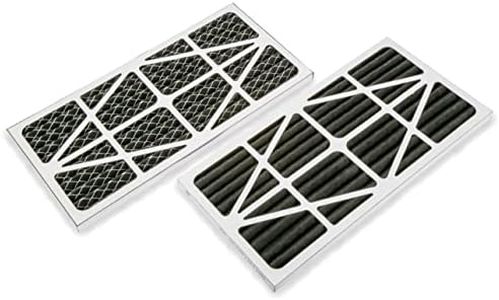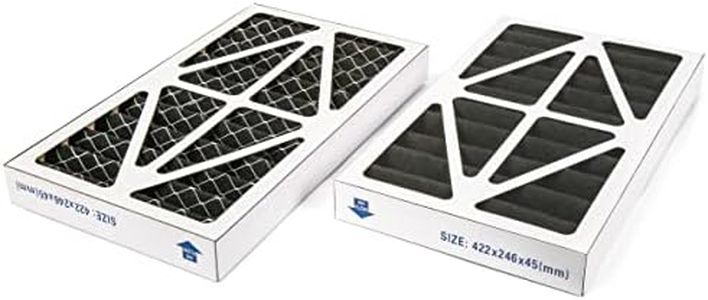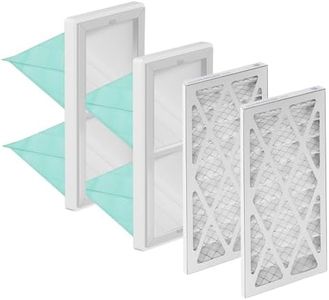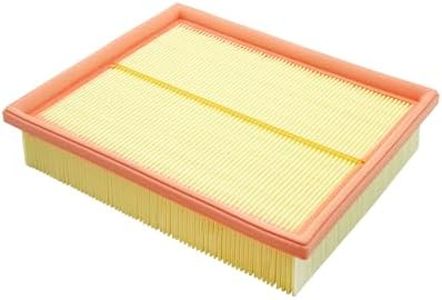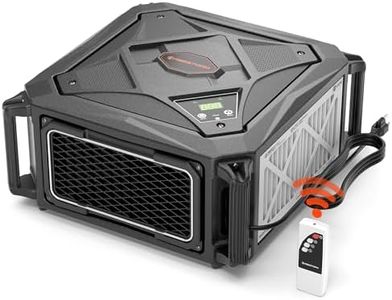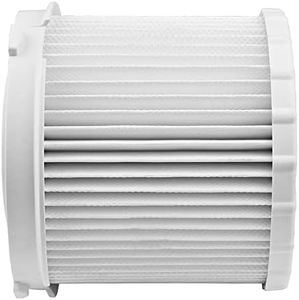We Use CookiesWe use cookies to enhance the security, performance,
functionality and for analytical and promotional activities. By continuing to browse this site you
are agreeing to our privacy policy
10 Best Air Filtration For Woodshop
From leading brands and best sellers available on the web.By clicking on a link to a third party's website, log data is shared with that third party.
Buying Guide for the Best Air Filtration For Woodshop
When choosing an air filtration system for a woodshop, it's important to select a model that will effectively capture dust and airborne particles to maintain a safe and comfortable working environment. Since woodshops tend to generate a lot of fine dust, an appropriate air filter will protect your health and keep your workspace cleaner. Understanding your shop's size, the types of woodworking you do, and your cleaning habits will help you pick the best air filtration unit for your needs.Airflow Capacity (CFM)Airflow capacity, measured in cubic feet per minute (CFM), tells you how much air the unit can move through its filters each minute. This is important because it determines how quickly the air in your woodshop will be cleaned. Smaller units with low CFM are typically suited to smaller spaces or lighter dust loads, while larger units with higher CFM can keep up with the rapid creation of dust in bigger shops or during heavy-duty tasks. To find a good fit, consider both your shop's square footage and ceiling height to estimate the total air volume, and then pick a filter that can cycle all the air several times an hour. If you're doing a lot of cutting or sanding, choose a higher CFM to stay on top of the dust.
Filtration Stages and Filter TypesWoodshop air filters often use a combination of filters, such as pre-filters and HEPA or fine particle filters. Filtration stages refer to how many different types of filters the air passes through before it's released back into your shop. More stages usually mean better dust capture, especially for fine particles that can be harmful over time. Simple systems may have a single filter that catches large dust, while advanced ones may use multiple filters to capture everything from big chips to tiny particles. If you work mainly with hand tools and generate coarse dust, a simpler system can work, but if you use power sanders or cutters, look for a unit with fine particle filters or even true HEPA filters for maximum lung protection.
Noise LevelNoise level is how much sound the filtration unit produces while running, often measured in decibels (dB). This matters because a noisy machine can be distracting or uncomfortable during long woodworking sessions. Quieter machines make for a more pleasant workspace, especially if your woodshop is in your house or attached garage. Noise levels can range from whisper-quiet to the level of a vacuum cleaner. If you’re sensitive to sound or spend hours in your shop, you might prefer a unit that boasts low noise operation, while for short or occasional use, higher noise might not bother you.
Installation Style (Portable vs. Ceiling-Mounted)Air filters come in portable or ceiling-mounted styles. Portable units can be moved around your shop to target different areas, which is handy if your workspace changes or if you want to filter air right next to a machine. Ceiling-mounted units are fixed and save valuable floor space, providing continuous filtration in one spot, often circulating air more evenly throughout a workshop. If your woodshop is small or multi-purpose, a portable option may be best; for a dedicated workspace or if you want a set-it-and-forget-it approach, a ceiling-mounted filter is often the better choice.
Filter Replacement and MaintenanceRegularly replacing or cleaning filters keeps the unit working effectively. Some filtration systems have filters that can be easily removed and cleaned, while others require full replacements. Look for units with accessible filters and check if replacement filters are easy to find and not too expensive. If you generate dust frequently, pick a filter system that you can service quickly and that provides a filter change indicator or clear instructions for maintenance. If you do woodworking only occasionally, filter longevity may be less important.
